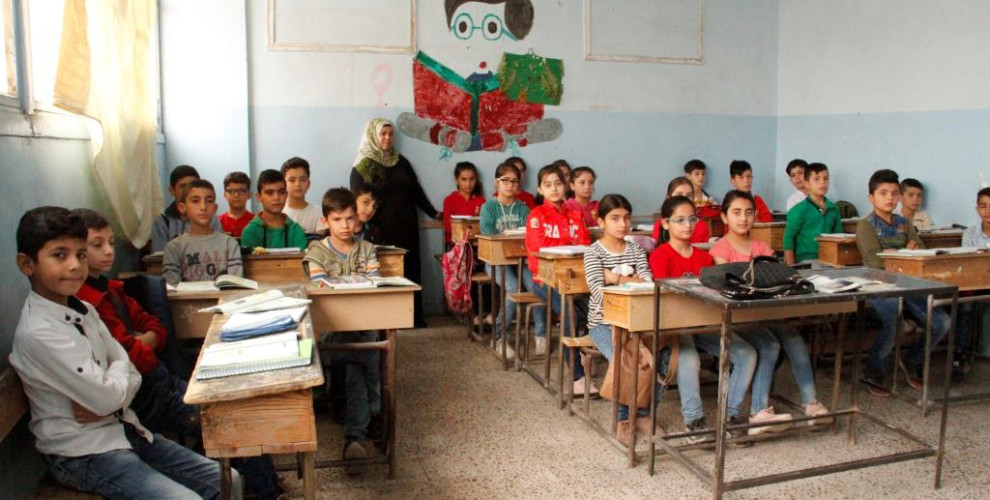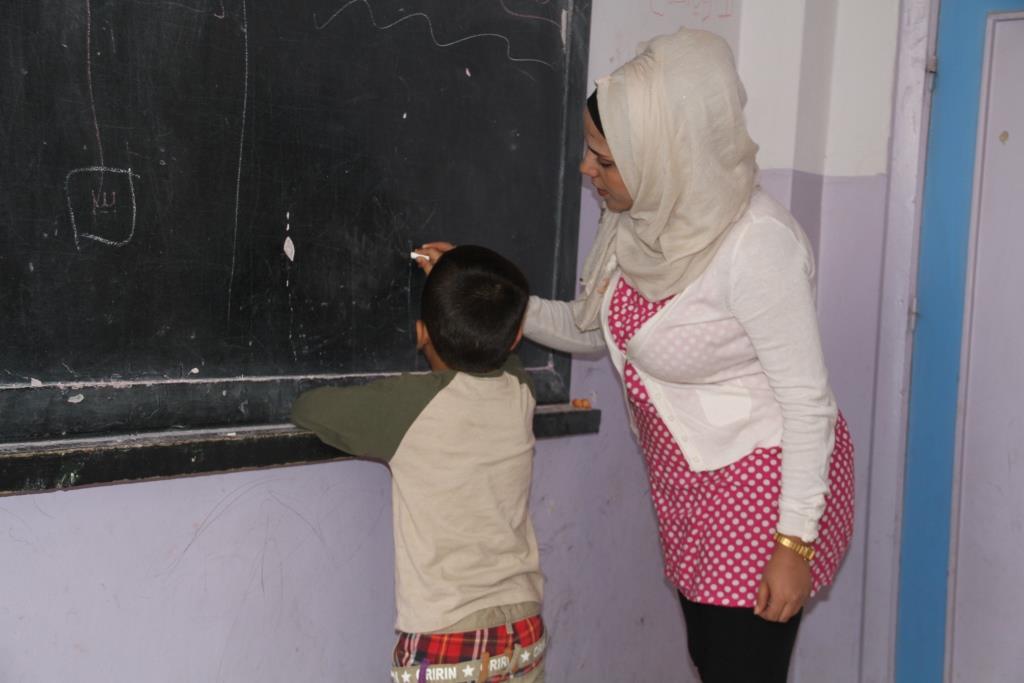Serêkaniyê: An example of education in many languages
Education is provided in both Kurdish and Arabic and the Autonomous Administration is planning to introduce the other languages of the region.
Education is provided in both Kurdish and Arabic and the Autonomous Administration is planning to introduce the other languages of the region.

According to UNESCO figures, more than 2,500 languages are in danger of disappearing in the world where almost 6,000 languages are spoken.
In the nation-states in the Middle East, a cradle of many different peoples living together, only the languages of the dominant nations are taught and only the language of the dominant nation is actually developed.
Kurdish, Arab, Syriac, Armenian and Chechen peoples who speak different languages in Northern Syria and Rojava resemble a small world a part.
In the region, prior to the Rojava Revolution of 2012, only Arabic was used in education and, indeed, other languages were at risk of extinction. However, thanks to the steps taken by the Autonomous Administration, established with the Revolution, the opportunity arose for every people living in the region to receive education in their mother tongue and to develop their own languages.

Currently, schools in Northern Syria and Rojava are taught in Kurdish, Arabic and Syriac languages. The effort of the Autonomous Administration has not ended, as it is working to open schools for the development of other languages.
One of the cities in Rojava where cultural variety lives together is Serêkaniyê, where Kurds, Arabs, Assyrians, Armenians and Chechens are co-existing.
Syriac, Armenian and Chechen languages faced, and to a certain extent still face, the danger of disappearing from society due to years of assimilation and denial policies.
In Serêkaniyê, schools linked to the Autonomous Administration provide education in Kurdish and Arabic. The opening of schools in Armenian, Syriac and Chechen are also on the Administration’s agenda, depending on the resources available.

There are 117 primary schools, 32 secondary schools and 4 high schools in Serêkaniyê and 20 primary schools are using both Kurdish and Arabic. Other schools are distributed according to the regions where Kurds and Arabs live. There are a total of 20,000 students throughout the province.
Serêkaniyê Schools Executive spokesperson, Idris Hecî Hesen, spoke to ANHA about the education activities in the city.
Noting that the peoples of Northern Syria have been deprived of their right to education in their mother tongue for years, Hesen said: “With the implementation of the Autonomous Administration's system in the region, every citizen is educated in his/her mother tongue and this acknowledge their existence as a people. Because language is an asset of every society.

ANHA visited one of the first schools in the city. One of the first example of co-existence of peoples is the fact that Kurdish and Arab students are studying together.
Students play all together during school hours with Kurdish students spelling out Kurdish letters and Arab students spelling out Arabic letters. What is noteworthy is that each pupil learns his/her mother tongue until the 4th grade and then begins to learn the language of other peoples.
The result of this method is that peoples get to know each other and respect each other's national identities.

Emine Ebud, a sixth grade Arabic teacher, said that at school she taught children at a young age. She said: “First of all, as teachers, we have to support and implement the principles of co-existence while teaching our students. This equality is provided by language. We are educated equally in our native language as peoples”.
Fifth grade Kurdish teacher Leyla Qewas stated that she had been dreaming of a time where she could study in Kurdish, but during the regime time she was not educated in her own mother tongue, so she experienced some difficulties at school for the first three years of primary school. “I could not understand what the teacher was saying - she explained - we were feeling like strangers. Because the language is the identity of people”.
Leyla noted that they made no difference between peoples and said: “Despite the problems we may have had in establishing our education system, at the beginning, we have made a lot of progress. We are happy to see our students educated in their mother tongue, and students are also happy”.